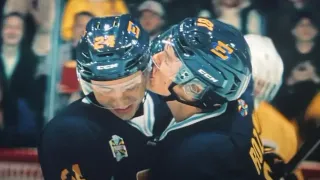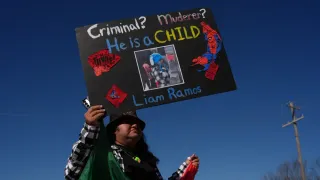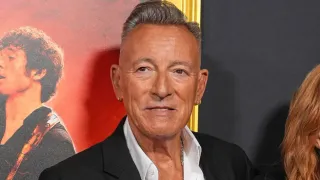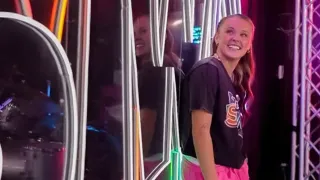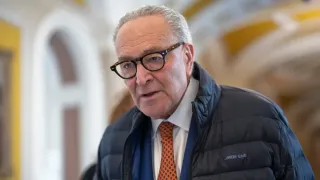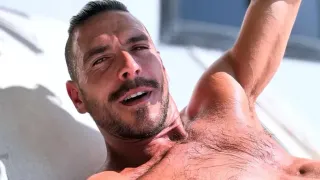May 6, 2017
Pride Center Reaches Out to Stockton Area Youth
Seth Hemmelgarn READ TIME: 7 MIN.
On a recent Friday afternoon, a group of teenagers sat around a table at the San Joaquin Pride Center in downtown Stockton discussing where they were going to college, ideas for social activities at the center, and drag.
Listening to a group of LGBT youth, some of whom are still in their mid-teens, confidently discussing their sexuality and their futures may seem unlikely to happen in Stockton, a city with around 300,000 people that's about two hours east of San Francisco in California's Central Valley. The region is best known for agriculture, and LGBTs in the region are scattered.
Blair Eversley, 21, who's gay and grew up in Stockton, experienced bullying in high school and abuse at home. Speaking to the Bay Area Reporter earlier in the day, he said it was "really, really hard for me to come out," but when he was introduced to the center, people shared their coming out stories with him and made him comfortable.
Nicholas Hatten, the center's executive director, said with that kind of experience with youth at the center, "I realized this is what they need more than anything. They need that peer support."
The center, which has been working for more than five years to create a safe space for LGBT youth and others, has received a boost in its efforts with a grant awarded by the state health department's Office of Health Equity to launch its Cultivating Acceptance project.
With the grant - $1.18 million over five years - the center aims to expand outreach efforts to youth and help them make their school campuses safer, educate parents, and increase cultural competency among mental health professionals, among other goals, said Hatten, who's 42 and gay.
The funding will help boost the center's budget to $365,000 in the next fiscal year and enable the organization to hire an additional outreach director and other staff. It will also allow it to provide stipends for people who are earning their master's in social work.
In a news release announcing the grant awards for the center and other groups, Dr. Karen Smith, the lesbian director of the state's health department, said, "The California Reducing Disparities Project recognizes that many of the promising mental health services in our most diverse communities need additional support in order to improve their effectiveness."
Community Center Fills a Need
Stockton's LGBT community center, which is at 115 North Sutter Street, started out five years ago in a retail spot on the first floor of the Metro building, but it recently moved upstairs to a larger space. There's a large, airy central room with hardwood floors and glittery drapes in the colors of the rainbow on one wall, small offices for counseling or meetings, and a library.
Hatten said the center serves about 1,000 people a year, including its outreach to schools. He estimated 4,000 to 6,000 people attend the annual LGBT Pride festival the center organizes each August. (This year's event will take place Saturday, August 26.)
Even after spending just a few hours there, the need for the center seemed clear.
Lisa Eberhardt, 20, and Rosemary Miranda, 19, stopped by to get a name change packet for a friend who's transitioning from female to male. The friend, who's 16, lives on the edge of Stockton and doesn't have "the courage or support system to do it alone," said Eberhardt, who identifies as pansexual and cisgender.
Some LGBTs who grew up in Stockton, and then left, have returned to the city in order to help others.
Hatten, who's worked on campaigns for Democratic Stockton Mayor Michael Tubbs and Congressman Jerry McNerney (D-Stockton), thought he needed to "get out of the Central Valley" to be his "true self." He went away for a while, but he was inspired by the work of lesbian Assemblywoman Susan Talamantes Eggman (D-Stockton) to "come back here and make a difference."
Stockton native Lange Luntao, 26, graduated from Harvard University and was a Fulbright fellow in Malaysia in 2003. Like Hatten, he eventually decided to return home, where he is a teacher at Aspire Langston Hughes Academy, a college-preparatory public charter school. In November, Luntao won a seat on the Stockton Unified School District board.
"I love this community a great deal," said Luntao, who's gay and often works with the Pride center.
Growing up gay in the area, "there wasn't much for me here," he said. Back then he needed a place like the community center, which is "one of the only truly open and youth-oriented spaces where kids feel safe to hang out in Stockton." Even non-LGBTQ youth show up, he said.
Field Trips to the Bay Area
Along with the school district, the center organizes field trips where young people go to San Francisco. When Luntao, who's lived in San Francisco, brings queer kids of color to the Castro district, they see things that many take for granted, he said.
"My kids are so surprised to see queer couples holding hands walking down the street," Luntao said. "It's really empowering for them to see people out and proud."
Gil Ruiz, 16, said the trip to San Francisco "really brought me to come out." He said he realized if he wanted to be himself, "I need to let it happen by coming out."
Jonathan Lopez, the center[]s outreach director, has lived most of his life in Stockton and knows what it's like to be an LGBT youth there. When he was 16, Lopez was beat up by a group of boys for being gay before he even realized that's what he was.
"They were doing the smear the queer game," said Lopez, 30. " I didn't understand why." However, he said, the incident "kicked it into gear for me," and he asked himself, "Do I look queer? Am I queer?"
He had more struggles at home. His stepfather ridiculed him and ripped out one of his earrings. Lopez left after his mother made him choose between embracing his sexual orientation and living at home.
Things have changed a lot since then. Lopez, who leads drag workshops for youth at the Pride center, frequently performs in drag as Helen Hills. His mother now volunteers at the center and appears with him and Helen Hills in a poster for the Madres Unidas (Mothers United) campaign, which the center designed to reach out to the Spanish speaking community.
Eggman, the lesbian assemblywoman, is on the center's advisory board. Its teen center is named for her and her wife, Renee Hall.
The San Joaquin Pride Center "provides a safe space that I think the area has been in big need of," said Eggman, who added she's "very proud" of the organization's work, especially its outreach to schools.
Providing a 'Radar Effect'
Lopez said the center "sends off a radar effect" through the city with the message: "LGBT people matter."
Referring to the homophobia and bigotry of President Donald Trump's administration, Lopez said, "We are surrounded by all that. Ten minutes outside Stockton is farmland. You're in hickland."
Stockton's gay nightlife is "nonexistent," he added. Paradise, where he does drag shows, is the only gay bar.
Josh Pogue, 15, who wore a blue Seattle T-shirt with a rainbow on it, suggested to another teen at the center recently that they should be grateful to live in Stockton.
"Lodi is boring," said Pogue, referring to the small nearby city where he lives. "We don't have anything. You have a mall. We don't."
James Patnaude, 18, who lives in the even smaller town of French Camp, pointed out to Pogue, "You have a Wal-Mart. We have a gas station I have to walk three miles to."
In a conversation earlier with the B.A.R., Patnaude, who identifies as transgender and queer, said that growing up, "I was so in denial about myself. I attempted to cut off every masculine part of myself."
Patnaude said he didn't even know the term transgender existed until he helped start a gay-straight alliance his junior year of high school.
"Before that, I identified as a straight female," he said.
A volunteer at the center, Patnaude said it's "given me more resources than I thought I would ever have access to." Services include a transgender peer support group, which typically draws five or more people.
In the area's schools the experiences of LGBT students vary from town to town. Susan Diohep, 52, is a teacher and GSA adviser at Stockton's Stagg High School, where Jefferson Leiva, 18, is a senior and the GSA's treasurer.
Last year, when the alliance started, there was "a real surge of interest," with upwards of 40 students at each meeting, Diohep said. It's died down since then, but Leiva said that Stagg, which has about 1,300 students, "is a very accepting, diverse community. Nobody is really up into each other's business."
Margaret "Mags" Baker, 52, of Lodi, talked about what happened last May when her transgender son, Colin, graduated from Lodi High School.
"They put his old name on the program," even after school officials had "promised it was going to be his real name," said Baker. An academic award Colin received also included his "dead name," she said, referring to the name Colin was given at birth but no longer goes by.
"We were both shaking, physically shaking," Baker, who attended the ceremony with her daughter, Shannon, 17, said of their reaction at seeing Colin's former name printed in the program.
"Colin looks like a boy," she added, and having his old name appear meant him being "outed to the entire stadium."
Shannon is bisexual, and Baker said in a Skype interview that when her children came out to her, "I was really terrified to even send them to school, but I've seen a change." She's not sure, though, whether that's because "people are just being polite."
Colin didn't want to be interviewed. Lodi High's principal didn't respond to emailed questions.
It's situations like the one experienced by the Baker family that the Pride center hopes its expanded programs can help address.
To learn more about the San Joaquin Pride Center and the programs it offers, visit http://www.sjpridecenter.org/
